
Do you have what you need to make your garden grow?


Garden Center
Store Hours
Mon-Sat:
6:00am - 9:00pm
Sun:
8:00am - 8:00pm
Curbside:
09:00am - 6:00pm
Location
Popular at Your Garden Center
Trending Garden Supplies in May
Trending Live Plants
Garden Project Calculators
;Resize=(703,395.44))
Grass Seed Calculator
When you're ready to seed your lawn, our calculator helps you estimate the amount of grass seed you'll need to get the job done.
;Resize=(703,395.44))
Mulch Calculator
Enter your preferred material, the square footage and mulch depth of the coverage space for accurate results.
;Resize=(703,395.44))
Fencing Calculator
We'll calculate the amount of fencing you should purchase based on your property needs.
Shop Outdoor and Garden Brands
Frequently Asked Questions About Gardening
How do I check my USDA planting zone?
Check the USDA zone map, as planting zones have shifted over the years. Zones with higher numbers can plant earlier in the year. Increase your odds of successful gardening by choosing plants that are meant for your zone.
What does direct sowing mean?
If the soil is warm and pliable, consider planting your flower, veggie, or fruit seeds directly into your garden. This is called the "direct sow" method. The time to plant will be after the threat of frost is gone for the season, as sprouts and seedlings can't weather those conditions. You can also start your seeds indoors if you'd like. Consult your seed package for when and how to sow seeds.
How do I plant veggie seeds?
The best source of info is the seed package your garden-to-be came in. It's key to successfully growing fruits, veggies, and spring flowers — indoors or outdoors. Requirements vary from one type of flower, fruit, or veggie plant to the next. Certain seeds should only be sown indoors, and your seed packet will tell you that, too. You'll be a pro at planting seeds in no time.
Should I harden off my seedlings before planting them outside?
Yes, for best results, if you raised plants indoors from seeds in your own plant nursery, harden them before you transplant them. Hardening is the process of getting them used to outdoor life, spring rains, and temperature swings. It slows their growth until they're strong and ready to take off during a spring warm front. Hardening also makes your plants more resilient to a sudden cold snap. Speak to a garden center associate or read your seed packets for more information.
How do I plant a transplant or baby plant?
Squeeze the plastic around the plant to loosen the soil. Carefully coax the plug of dirt with the plant into your palm, then place it into the hole you dug for it. Make sure the top of your transplant's soil is even with the garden soil, and carefully press the earth into place. Avoid mounding a volcano of dirt around your plant, and don't tamp down the ground too tightly. Your plant baby needs to breathe.
What are seed tapes?
If you're dealing with extremely tiny seeds or want more guidance in planting, consider seed tapes. They're biodegradable pieces of paper with tiny seeds affixed at regular intervals. Just bury the tape and water as directed. If all goes well, you'll have perfectly spaced sprouts pop up soon.
Garden Project Ideas
The Home Depot Garden Center at Yulee
Celebrate Springtime Gardening
On beautiful spring days, tidy the yard before everything blooms in earnest. Many people feel inspired to refresh their outdoor space for entertaining as well. Don't forget to clean the shed and sweep out the gazebo in preparation for spring, too. No matter which plants you need and what outdoor projects you choose to tackle, search for your local plant nursery and find that The Home Depot Yulee Garden Center can help you enjoy your spring activities to the fullest.
Plant Hardiness Zones Explained
The first thing to know when planting spring flowers, vegetables, and other seeds is your planting zone. Every location in the U.S. and its territories is sorted into blocks by climate. Find your zone on the USDA plant hardiness zone map and learn when to plant seeds.
For example, you could plant bell pepper seedlings outdoors in mid-March in Zone 10, but not until the end of May in Zone 4. For best results, choose plants in your zone number or less. In other words, a Zone 6 garden can support plants listed as Zones 1–6. The timeframe to direct sow outdoors in your garden is often around a month later than the indoor start date. Read your seed packet for details. If you start seeds later than recommended, it's not ideal, but it should even out as time passes.
Gardening in Your Growing Zone
In the areas of Zones 9 and 10 stretching across the Southeast, you can plant indoors early in the year. Your odds of frost are low in this part of the country, but not zero. Be mindful of cold snaps and cover any sprouts or early-riser bulb plants during cold times.
The climate and weather make it easy to get and keep a beautiful garden. A wide variety of veggies, flowers, and plants thrive in Florida and southern Georgia. If you've got good soil drainage, you can even grow citrus trees. You'll have excellent results with peppers of all heat levels and colors, including jalapeños, bell peppers, and more. Cucumbers, zucchini, squash, and pumpkins, which are direct sow only, will flourish. Tomato plants will yield thriving leaves and fruit, as they're tropical in origin and are happiest in the heat.
Plant Seeds Outside With Direct Sow
Planting seeds with the direct sow method, right into the soil, is another option. It doesn't give you as much organized planning in terms of space and reliability as starting indoors. However, if you like to go with the flow, follow the instructions on your seed package and give it a try.
Prepare to deal with whatever hand nature deals you: Be ready for none of your seeds to sprout, all of them to come up, and anything in between. Your seedlings will need to survive wind, rain, and sudden cold snaps, as well as bugs and rodents that crave tender greens. But if you're lucky, you'll get strong sprouts that are ready to grow all spring.
Start Seeds Indoors
If you'd like more control over your seedlings' journey or you're eager to get growing, start your seeds indoors in your own seedling garden. In general, you can plant seeds indoors about a month before you can do it outside. Like direct sow, you push the seeds into the soil as directed on the seed packet, but that's where the similarities end.
You're responsible for giving them quality substitutes for rain and sun. Keep your seeds cozy with heat mats and grow lights, water them carefully with a spray bottle or watering can, then thin them as they germinate in groups of three. Give them a boost with a gently blowing fan as they lengthen into sprouts if you'd like. Harden them off to get them used to outdoor conditions, then transplant them into your garden when they're big enough.
Transplant Young Plants Into Their New Homes
When your plants have three or four true leaves — different from mini seedling leaves — it's time to transplant them. In quality soil, dig a hole that's the same size as the dirt plug where your transplant has been growing. If your ground soil isn't great, dig a slightly bigger hole and fill the extra room with nutrient-rich topsoil. Apply fertilizer as directed. Don't apply more than recommended, as you could burn and kill the plant instead of helping it along.
Protect Your Garden With Mulch
Finish your flower bed with compost and mulch. Mulch controls weeds and keeps your soil from drying out. Compost enriches the soil so your garden can grow even better. It may help foster stronger plants that bear more fruit and flowers. Mulch and compost can be DIY creations, but you can also purchase them in-store. The next time you're looking for "mulch near me," stop by the Garden Center to get the right amount.
Greet the Spring
Don't miss a minute of growing season. Prepare to fertilize your lawn, plan your garden and landscaping, and browse The Home Depot nursery to find inspiration on what to plant when the weather warms. For those without lawns, consider adding artificial grass, an outdoor rug, or a pellet grill to your balcony or patio. Shop for the seeds, fertilizer, and soil you need in the aisles of your Yulee Garden Center, online, or on our mobile app. Let's get growing together.
Nearby Stores
Find Another Store
12111 Lem Turner Rd
Jacksonville, FL 32218
15.31 mi
Mon-Sat: 6:00am - 10:00pm
Sun: 8:00am - 8:00pm
9520 Regency Square Blvd N
Jacksonville, FL 32225
20.80 mi
Mon-Sat: 6:00am - 10:00pm
Sun: 8:00am - 8:00pm
12721 Atlantic Blvd
Jacksonville, FL 32225
21.82 mi
Mon-Sat: 6:00am - 10:00pm
Sun: 8:00am - 8:00pm
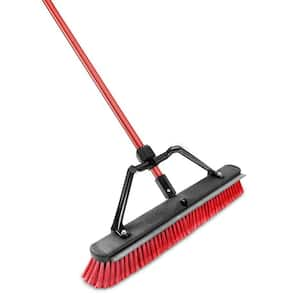
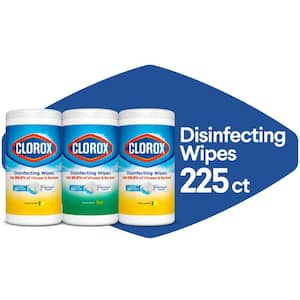
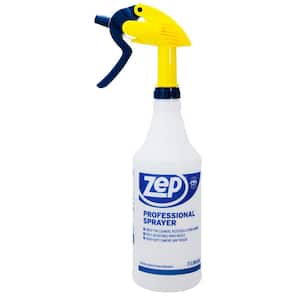
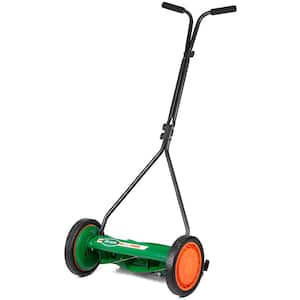
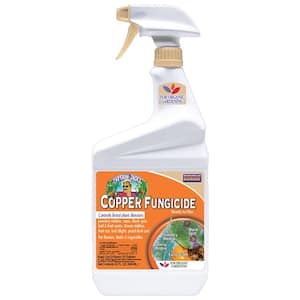
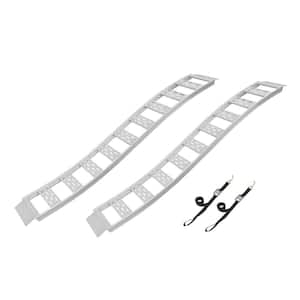
)
)
/17_514245_S_012_Product%20Image%20(square).jpg?im=Resize=(300,300))
;Resize=(300,300))
)
)
)
)
)
/2023_P2_Rain_Barrels_Product%20Image%20(square).jpg?im=Resize=(300,300))
)
;Resize=(300,300))
;Resize=(300,300))
;Resize=(300,300))
/12_SOIL_B_0420_Social%20media%20(square).jpg?im=Resize=(300,300))
;Resize=(300,300))
)
)
;Resize=(300,300))
;Resize=(300,300))
;Resize=(300,300))
;Resize=(300,300))
)
)
;Resize=(300,300))
;Resize=(300,300))
;Resize=(300,300))
;Resize=(300,300))
;Resize=(300,300))
)
/18Patio_Camden_Seagrass_5pcSeating_Planters_302468736_DTL3_L_Social%20media%20(square).jpg?im=Resize=(300,300))
;Resize=(300,300))
;Resize=(300,300))
;Resize=(300,300))
)
;Resize=(300,300))
;Resize=(300,300))
)
;Resize=(300,300))
)
.jpeg?im=Crop,rect=(363.69230769230774,1.2307692307692308,958.7692307692308,958.7692307692308);Resize=(300,300))
;Resize=(300,300))
)
;Resize=(300,300))
;Resize=(300,300))
)
;Resize=(300,300))
)
)
;Resize=(300,300))
;Resize=(300,300))
)
)
;Resize=(300,300))
)
;Resize=(300,300))
;Resize=(300,300))
)
)
;Resize=(300,300))
)
)
/Capello_Spring_Mum_10in_Social%20media%20(square).jpg?im=Resize=(300,300))
;Resize=(300,300))
)
)
;Resize=(300,300))
)
)
;Resize=(300,300))
)
)
;Resize=(300,300))
;Resize=(300,300))











































